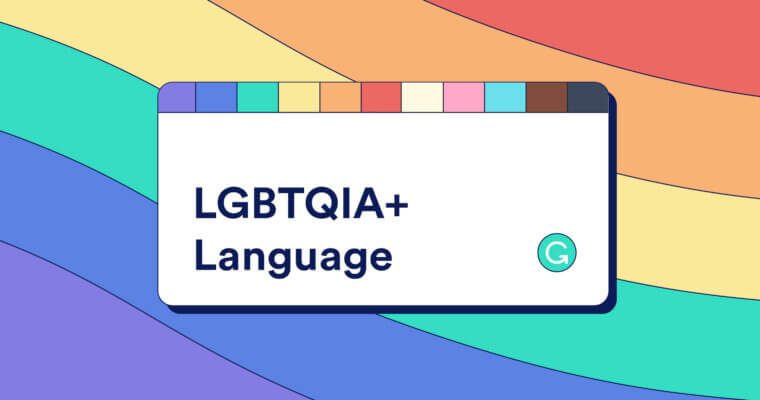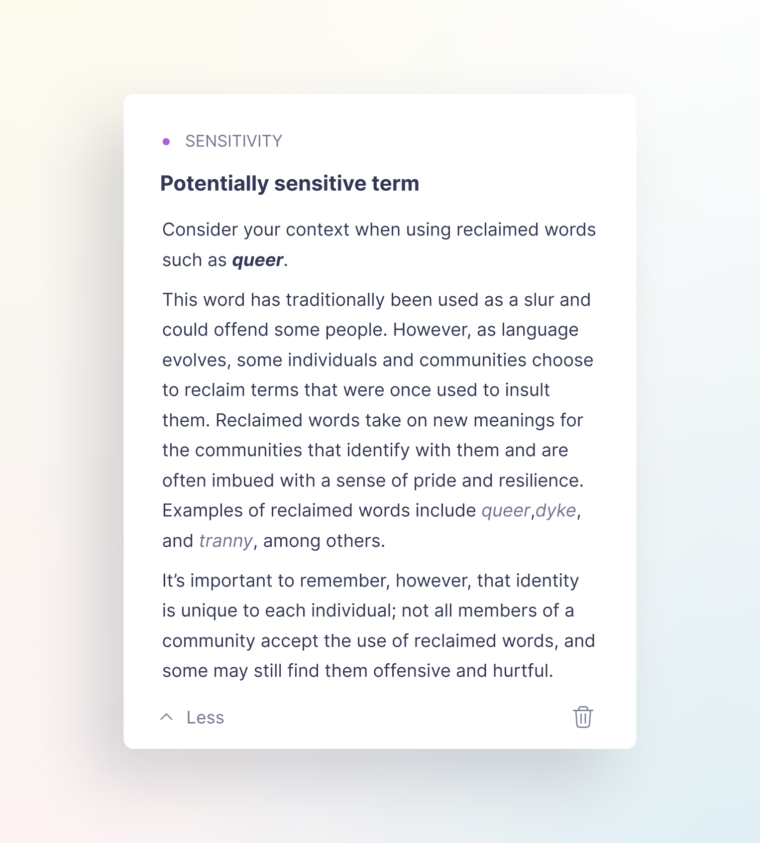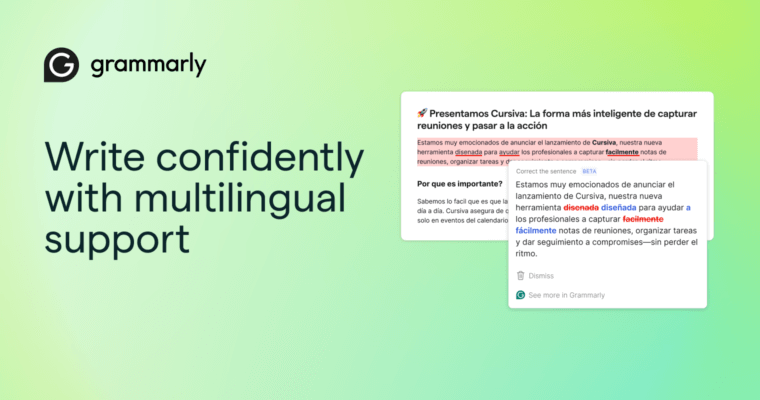
It’s June, and Pride is on many people’s minds. You may be thinking about how you use language, and how the words you use can make people in your life who belong to the LGBTQIA+ community feel accepted and included.
The Grammarly team thinks about this every day. Language is always evolving, and we want Grammarly’s writing assistant to reflect the way that English changes to adapt to the way we understand one another.
That’s why Grammarly’s writing assistant has incorporated suggestions through the delivery dimension of Grammarly Premium that can help you stay empathetic to the LGBTQIA+ people in your life. These suggestions are works in progress, and we welcome feedback from our users about their effectiveness—we’ve made multiple adjustments to our suggestions based on just that. Our goal with these suggestions is not to force you to write a certain way but to ask you to take a moment to consider how your audience may be affected by the language you choose.
Here are some areas of language the writing assistant might alert you to.
Disrespectful or offensive language
Sometimes, in the learning process, we may use language that we don’t realize is offensive, including words that could be categorized as hate speech or slurs toward the LGBTQIA+ community. These are words that have not been reclaimed by the community and are almost always inappropriate. Grammarly will point out several of these words and suggest that you remove them from your work.
Outdated terminology
Understanding one another is a continual, evolving process—the words that we use to describe the LGBTQIA+ community now are not the same as they were twenty or even five years ago. However, if we’re not in the LGBTQIA+ community, or if we don’t have many loved ones who identify with that community, we may not always have the most up-to-date knowledge.
Grammarly has identified some outdated terms. If you use them in your text, the Grammarly writing assistant will flag them and suggest an updated replacement—for example, to replace the outdated term transgendered with transgender—which can help you change that language in the future.
Reclaimed terms
Many marginalized communities, not just the LGBTQIA+ community, have reclaimed words that were historically used to hurt them. However, even if a once-harmful term has been reclaimed, that doesn’t give allies permission to reintroduce it back into their vocabulary. For example, I, the writer of this post, would call myself queer when with my friends who identify the same way and would be fine with my friends identifying me as such, but that doesn’t mean I want my straight colleague to reference me this way in workplace communication.

When using language like this, Grammarly will take into context the pronouns being used in the sentence you’re writing: if you’re writing about yourself, these terms won’t be flagged, because you are the best authority on yourself. But when writing about others, you will get a suggestion to consider whether this term is the best one to describe who you’re writing about.
More from Grammarly Spotlight:
How Grammarly’s Performance Reports Make You a Stronger Writer
How Grammarly Helps You Improve Your Vocabulary While You Write






